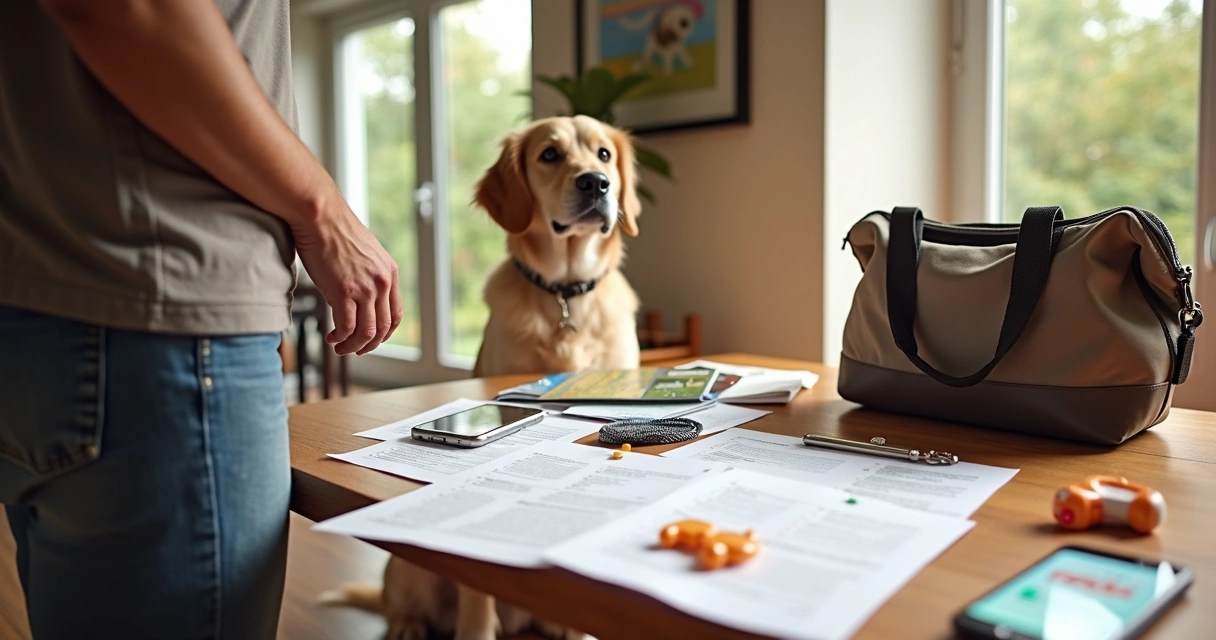Leaving your pet in someone else’s care is a big step. If you’re looking into boarding for the first time—maybe at a facility like Dogtown in Gloucester, MA—you’ll come across paperwork. Contracts, forms, policies. It can feel like a lot. The truth is, these documents are there to protect your pet, you as the owner, and the staff caring for your furry companion. In this guide, we’ll break down the basics of pet boarding contracts and policies, share what you should expect, and explain why they matter.
Why boarding contracts matter
When you leave your dog or cat with a boarding facility, you’re trusting someone else with their welfare. That’s not a small thing. Boarding contracts act as a written agreement. They lay out what both you and the facility will do, and what happens if something unexpected comes up. Facilities like Dogtown take these agreements seriously, following regulations such as those from the Massachusetts General Laws c.140 § 174G for boarding kennels, so your pet’s well-being is always a top priority.
Safety isn’t an accident—it’s a promise written down.
What’s typically included in a pet boarding contract
Pet boarding contracts can vary, but most cover a few big things. If you check out Dogtown's boarding service, you’ll likely see topics like these:
- Owner and pet information: Names, contact info, medical history, emergency contacts, even your pet’s quirks.
- Vaccination requirements: Proof of current vaccines such as rabies, Bordetella, and distemper—many states, including Iowa, have detailed rules about vaccination protocols.
- Feeding and medication instructions: How much and when, special diets, allergies, or daily medications.
- Behavior expectations: Notes on aggression, separation anxiety, or special care needs.
- Emergency care: Whether the facility can seek veterinary help if needed and who pays for it. The Code of Virginia describes specific requirements for this.
- Pick-up and drop-off policies: Hours, late fees, and release procedures.
- Financial terms: Pricing, deposits, cancellation or no-show policies, refunds.
- Consent and liability waivers: You’ll probably sign off allowing staff to care for your animal, and release the facility from some liabilities (but not from negligence).
Some policies are stricter than others, but clarity helps prevent confusion down the line.
The small print—policies to watch for
The details in the policies can affect your pet’s experience. Maybe you’re drawn to a place like Dogtown because of their individualized approach, with small groups and personalized attention. But even if a place seems warm and flexible, read the rules closely.
- Health policies: Look for rules about vaccinations, recent illnesses, or parasite control. Some places won’t allow pets that have had a cough, vomiting, or diarrhea in the last two weeks. And, most will quickly explain what happens if a pet falls sick while boarding.
- Socialization requirements: Some facilities accept only pets who pass an in-person assessment (Dogtown offers these for free), ensuring all guests can handle the group environment safely.
- Handling emergencies: Does the contract let staff bring your pet to their own vet, or do they try to call your vet first? Are you responsible for all costs? Good contracts specify how urgent care is handled and communicated.
- Behavior management: What happens if your dog becomes reactive? Can your cat be moved to a quieter area? These small points offer peace of mind during your absence.
- Cancellations and refunds: Life changes in a minute. How much notice do you need to give to avoid a fee? Are there holiday blackout dates?
- Personal belongings: Should you bring toys, bedding, or food? What happens if something gets lost or chewed up?
If any policy feels fuzzy, ask for clarification before you sign anything.
What legal regulations mean for you
Every state sets out basic operational rules for boarding facilities. These laws, like the Massachusetts General Laws c.140 § 174G, cover everything from daily inspections to how many animals can share a room. A few things you might see in these rules:
- Facility licensing and inspections
- Cleanliness and safety standards
- Employee training and supervision requirements
- Record-keeping for each animal
- Clear procedures for handling medical emergencies
Regulations help ensure a consistent, safe experience. If you’re boarding in Gloucester and want reassurance, knowing Dogtown follows these state standards should help ease your mind.

Questions you should ask before signing
It’s easy to feel rushed when checking in a pet for the first time. Maybe your ride’s waiting, or you’re anxious about your trip. Slow down. Ask a few key questions before signing anything:
- What happens if my pet gets sick or hurt?
- Who provides veterinary care, and how will I be notified?
- Are there staff onsite overnight?
- Can I update my instructions if anything changes?
- How often is feedback provided? Will I get photos or daily notes?
- Are there extra charges for certain services (like administering meds)?
- What if my travel plans change and I need to collect my pet early or late?
Facilities such as Dogtown typically give daily updates and encourage questions. If you’re seeking added engagement during the day, you might look into their daycare or day camp offerings for more personalized care.
The best facility will welcome your questions—sometimes before you even ask.
Preparing your pet (and yourself)
Before the stay, schedule any required pre-boarding assessments. This isn’t just red tape. It lets staff get to know your pet’s personality, and lets you see how your animal handles the new space. If your dog loves grooming or needs regular nail trims, you can review add-ons like Dogtown's grooming packages in advance.

Some people find it hard to leave. That’s normal. Maybe bring a familiar blanket, and leave emergency contacts. Set your expectations for communication. Use tools like the Dogtown app to get updates, pictures, and check in on how things are going.
A few final thoughts
Even after reading all the paperwork, you might feel a little unsettled the first time you board your pet. That’s okay. What matters most is finding a place that takes the contract as seriously as you do, and that welcomes your questions. Contracts and policies are the roadmap—it’s the staff and their care that make it feel like home for your four-legged friend.
Trust isn’t written on the page—it’s built with every visit.
If you’re thinking about boarding, personalized daycare, or grooming, Dogtown offers a free pre-enrollment assessment so you can meet the team, see the space, and decide if it’s right for you and your animal. Schedule your first visit today, and let your pet discover a safer, happier stay. Your peace of mind starts before you sign.
Frequently asked questions
What is a pet boarding contract?
A pet boarding contract is a written agreement between pet owners and the boarding facility. It states all the responsibilities of both sides, covers care instructions, emergency procedures, and facility rules, and is usually required before leaving your pet for services like those at Dogtown.
How much does pet boarding cost?
Rates vary depending on location, duration, services included, type of animal, and add-ons like grooming or medicine administration. Facilities like Dogtown offer package rates and à la carte options, so it’s best to review their service page or call for a precise quote.
What should I look for in policies?
Examine health and safety requirements, vaccination rules, what happens in emergencies, how behavior is managed, and refund policies. Look for clear, specific instructions that match your pet's needs. Make sure staff are trained and that the facility meets state regulations. Transparency is key.
Can I visit before booking boarding?
Yes, most reputable facilities—including Dogtown—encourage pre-enrollment assessments or tours. This lets you see where your pet will stay, ask questions, and make sure you’re comfortable with the staff and setup.
How to prepare my pet for boarding?
Schedule wellness checks and update vaccinations. Pack familiar items like toys or bedding. Provide written care and feeding instructions. If possible, visit ahead so your pet can get used to new sights and smells. Ask staff at the facility for tips—they’re used to helping pets adjust, and can offer advice unique to their setup.





